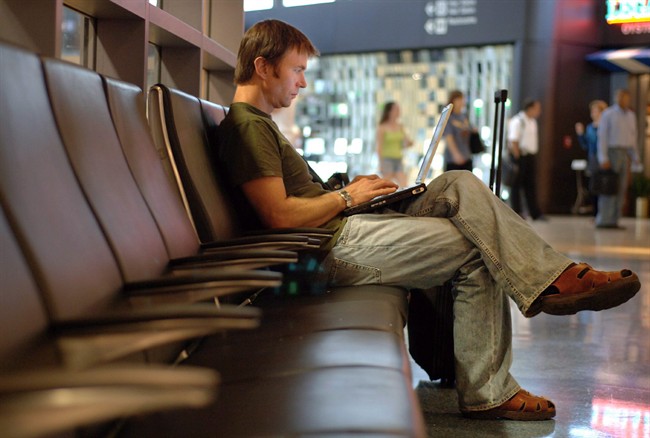A majority of Canadians believe the federal government can be trusted to keep them safe while protecting their privacy, new polling reveals, but a significant proportion lack basic knowledge of the security agencies that actually do that work on a daily basis.

The results of a government-commissioned poll, conducted by Ekos Research Associates in March, were made public earlier this week.
WATCH: CSIS’ right-wing extremist probe ended months before mosque shooting

They reveal “moderate” public trust in intelligence agencies overall, with 57 per cent of respondents agreeing that the federal government can be trusted to strike the right balance between security and civil liberties (24 per cent disagreed with that statement).
“Tracking reveals that the proportion of Canadians who say they trust the federal government to strike a balance between security and civil liberties is up 13 points since 2007,” the report adds.
Another thing that’s increasing over time, according to the Ekos results, is public support for giving police and security agencies additional powers “even if it means Canadians have to give up some personal privacy safeguards.”
READ MORE: CSIS may be illegally holding information about innocent people, says spy watchdog
While still not up to the levels seen right after 9/11, a full 38 per cent of the poll respondents agreed with that statement (44 per cent still reject the idea). The number of those agreeing rose to 48 per cent among people 65 years and older.
Concerns surrounding personal information and how it’s being collected definitely remain, however.
Four in 10 respondents expressed at least some level of worry about the information that intelligence agencies gather on them, with men more likely to express concern than women.
WATCH: Did Google Street View breach security at CSIS?

While some level of secrecy may be important to the work done by the Canadian Security Intelligence Service (CSIS), nearly 70 per cent of respondents said: “Canadians have the right to know more about information the government collects and the purposes it has for collecting it.”
The results showed that Albertans were less likely to want to know more about the information collected by the government than people in the rest of Canada, however.
Half of Quebecers have never heard of CSIS
When it came to basic knowledge of CSIS, a full third of respondents (33 per cent) said they’d never even heard of the agency.
Among respondents aged 18-34, the proportion was significantly higher, at 40 per cent. But Quebec was the real outlier, with half of people admitting they had never heard, seen or read anything about CSIS.
- Freeland set to table 2024 federal budget in the House of Commons
- All a-boot tradition: A look at finance ministers’ budget shoes through the years
- Inflation ticked higher in March. Are Bank of Canada rate cuts still in the cards?
- Food service strike: Air Canada, WestJet refine menus at Toronto Pearson
READ MORE: Google responds to potential CSIS security breach via Google Street View images
Once respondents were given a bit more information about CSIS’ mandate, however, 95 per cent said they would consider the agency’s work to be important, with 69 per cent characterizing it as “very important.”
The overall level of public confidence in CSIS when it comes to getting its job done was also high, at 84 per cent.
Overall safety
The poll results also reveal that attitudes surrounding general safety have stayed fairly steady, with 58 per cent of respondents saying Canada is about as safe as it was five years ago.
About one-quarter feel things have become more dangerous (Alberta is once again an outlier there, at 38 per cent), and just 12 per cent said Canada is safer than it was five years ago.
The Ekos poll results were drawn from a sample of 1,221 Canadians who completed a bilingual, probability-based telephone survey between March 12 and March 21. There were 587 landline respondents and 634 cellphone respondents. The margin of error associated with the total sample is +/- 2.8 percentage points, 19 times out of 20.




Comments